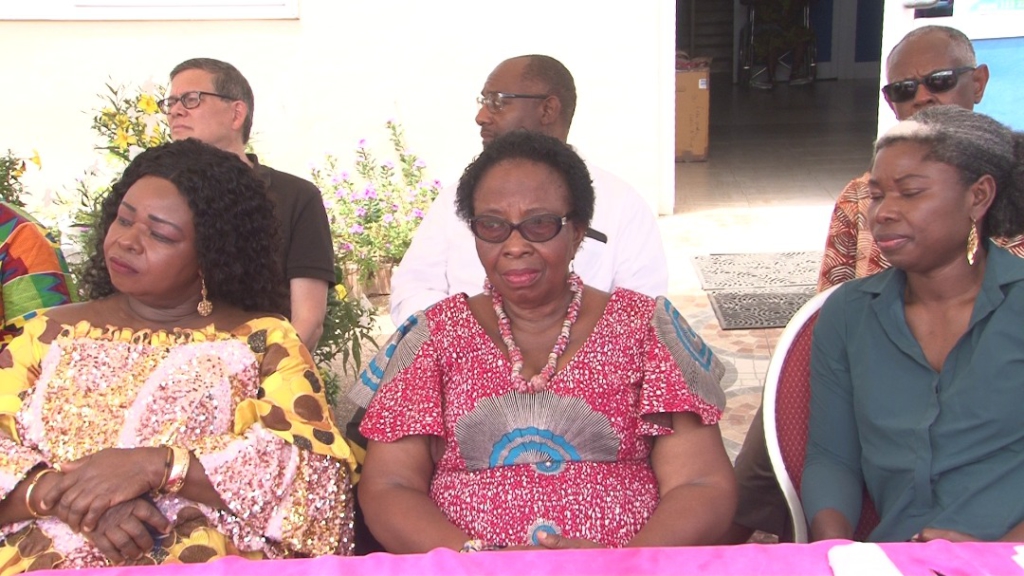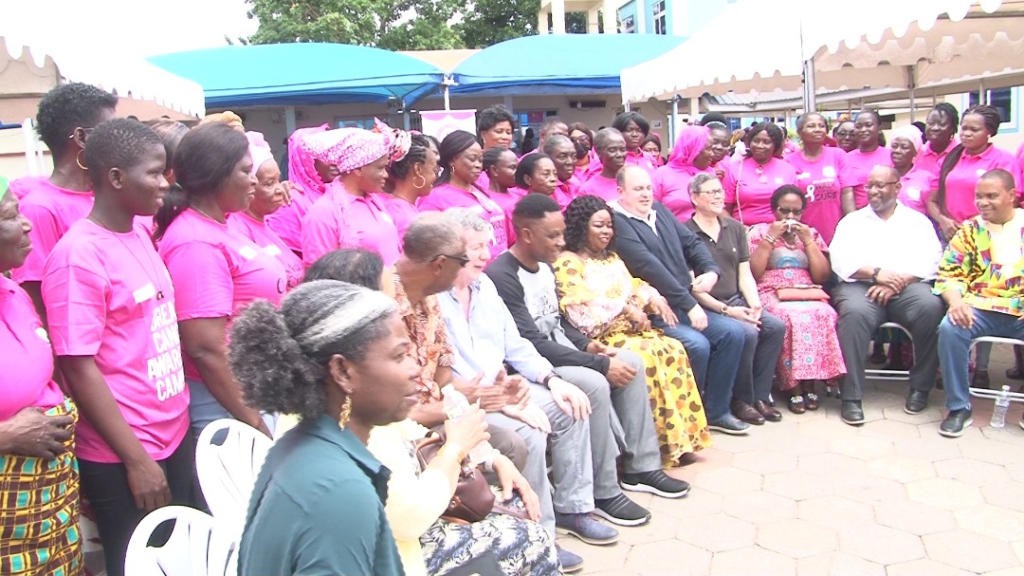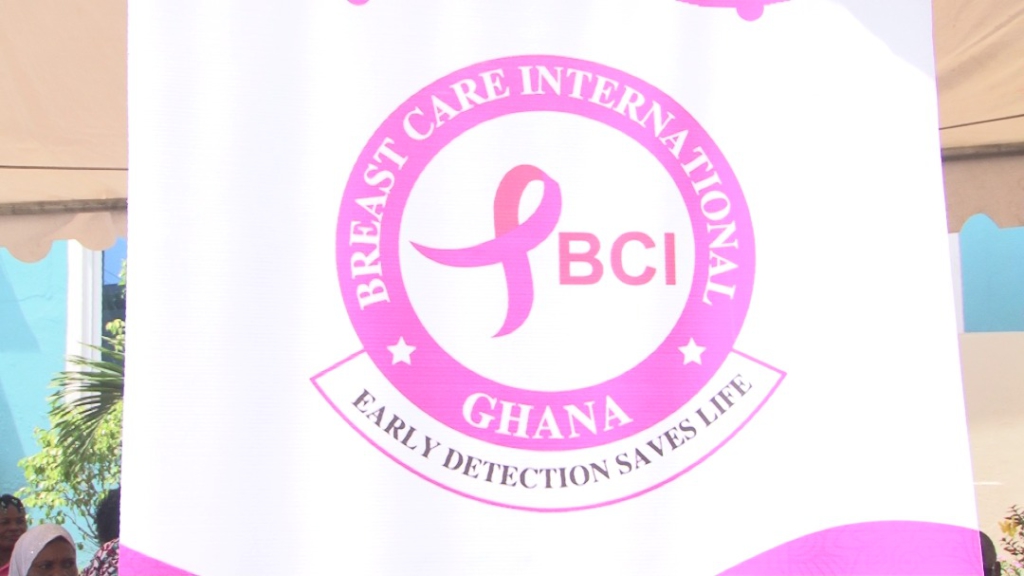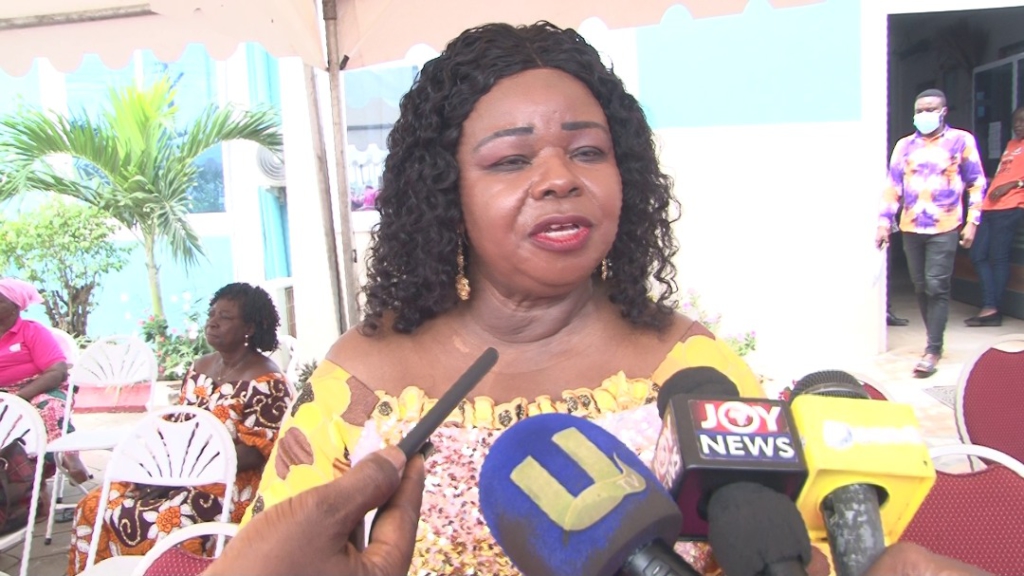Breast Care International (BCI) has applauded the development of new technology for treating cancer in Sub-Saharan Africa.
When the new technology 'Tiny Drones to Deliver Cancer' is used, it will eliminate cancer treatment side effects such as hair loss and others.

The technology will support Breast Care International and Peace Love Hospital's efforts in Ghana to combat cancer, particularly breast cancer.
Dr Beatrice Wiafe Addai, President of Breast Care International, is enthusiastic about the technology and believes it will improve patients' lives.

Prof Wilfred Ngwa, a Cameroonian lecturer at John Hopkins University in the United States, devised the new technology.
'Tiny Drones to Deliver Cancer' is a cutting-edge new technology that kills cancer cells that have spread throughout the body. The method combines tiny nanoparticles and medication in a grain-sized drone.
Patients are commonly implanted with rice-sized materials to guide radiotherapy treatment of cancers.

Once in situ, the smart technology will competently release microscopic particles or medicine to improve local tumour cell death during radiotherapy and act as a beacon to call in the patient's white blood cells at no further burden to patients.
The white blood cells are then trained to kill cancer cells and patrol the entire body, allowing them to combat cancer that has spread more effectively.
Dr Mrs Beatrice Wiafe Addai, President of Breast Care International, is enthusiastic about the technology and believes it will improve patients' lives.

She was speaking during a meeting with the Peace and Love Breast Cancer Survivors (PALSA) in Kumasi.
The Lancet Oncology Commission report supports the management, research, reporting, prevention, treatment and palliative care of cancer in Sub-Sahara Africa.
Professor Ngwa, who also lectures at Harvard University, hinted that clinical trials are starting at Harvard and John Universities in 2022 and follow up in Ghana in 2023.

Prof Ngwa said most of the cancers reported in Africa are late; cancer has spread to the parts of the body, and the only option is to do surgery.
“With the new technology, ‘Tiny Drones to Deliver Cancer’, no matter where cancer has spread, will train the immune system and fight it, without any side effects like the chemo and radiotherapies with loss of hair, among others,” he assured.
Latest Stories
-
EPA says lead-based paints are dangerous to health, calls for safer alternatives
50 minutes -
Queenmother calls on President-elect Mahama to appoint more women in his government
3 hours -
Atletico Madrid beat Barcelona to go top of La Liga
3 hours -
Usyk breaks Fury’s heart with points win in rematch
3 hours -
Ghana-Russia Centre to run Russian language courses in Ghana
9 hours -
The Hidden Costs of Hunger: How food insecurity undermines mental and physical health in the U.S.
9 hours -
18plus4NDC marks 3rd anniversary with victory celebration in Accra
12 hours -
CREMA workshop highlights collaborative efforts to sustain Akata Lagoon
12 hours -
2024/25 Ghana League: Heart of Lions remain top with win over Basake Holy Stars
13 hours -
Black Queens: Nora Hauptle shares cryptic WAFCON preparation message amid future uncertainty
13 hours -
Re-declaration of parliamentary results affront to our democracy – Joyce Bawah
14 hours -
GPL 2024/25: Vision FC score late to deny Young Apostles third home win
14 hours -
Enhancing community initiatives for coastal resilience: Insights from Keta Lagoon Complex Ramsar Site Workshop
14 hours -
Family Health University College earns a Presidential Charter
14 hours -
GPL 2024/25: Bibiani GoldStars beat Nsoatreman to keep title race alive
14 hours

